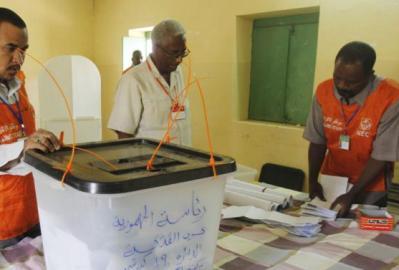Sudan’s cabinet passes elections law amid growing criticism
June 11, 2018 (KHARTOUM) – The Sudanese Council of Ministers on Sunday has approved the 2018 elections law amid objection of several political forces participating in the national dialogue.

For his part, the chairman of the Umma Party for Reform and Development Ibrahim Adam said discussions over the draft law were transparent, saying it would help to create broad political alliances and implement outcome the national dialogue.
He expressed hope the law would result in a true democratic transformation and smooth transfer of power.
However, several political parties who participated in the government-led national dialogue and are part of the National Consensus Government (NCG) have rejected approval of the 2018 law.
In a press release on Monday, the leader of the Reform Now Movement (RNM) Ghazi Salah al-Din Attabani said they were surprised by the government’s move to approve the elections law.
He added the government has “started off on the wrong foot”, saying the move violates the recommendations of the national dialogue and the sound political practice.
Attabani demanded the government to immediately stop the endorsement of the current law and to issue a new law that achieves national unity.
Also, the Popular Congress Party (PCP), who also rejected the government move, has invited the political parties participating in the national dialogue to meet on Monday evening to discuss the elections law.
On the other hand, the Liberal Democratic Party (LDP) said the current elections law doesn’t reflect a true consensus will, pointing it would continue to consult with its allies to form a broad front to develop democratic laws.
In October 2016, the political forces participating in the government-led national dialogue concluded the process by signing the National Document which includes the general features of a future constitution to be finalised by transitional institutions.
The NCG was installed in May 2017 to implement the outcome of the dialogue conference.
The rebel groups and opposition parties refused to join Khartoum process as they demand the government to end the war and ensure freedoms in the country ahead of the dialogue.
Also, last month, a coalition of some opposition left parties, the National Consensus Forces (NCF), announced the boycott of the 2020 elections, saying it won’t meet with the ruling party to discuss these elections.
On the other hand, several opposition groups that are part of the opposition Sudan Call forces consider participating in the next general presidential elections in 2020 if the regime of President Omer al-Bashir provides needed guarantees for a fair election and ensures freedoms.
(ST)
